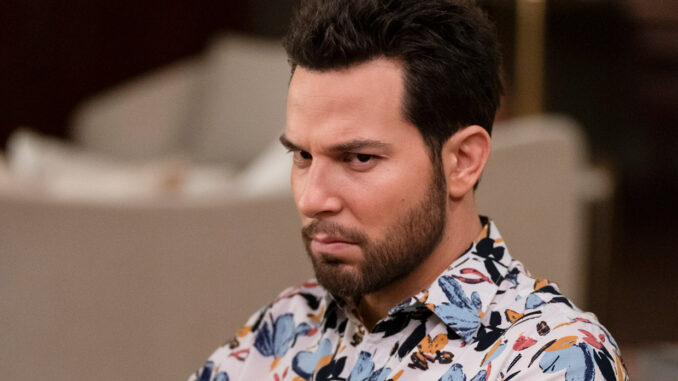
So Help Me Todd: Skylar Astin’s Advocacy for a Darker Edge
While “So Help Me Todd” initially charmed audiences with its lighthearted blend of legal drama and familial dysfunction, actor Skylar Astin, who plays the titular Todd, actively pushed for a more profound and unsettling shift in the show’s narrative. Specifically, he lobbied for a darker turn, revealing a yearning for moral ambiguity that challenges the often-comedic tone of the series. He wasn’t interested in simply providing laughs; he sought to explore the psychological impact of Todd’s unconventional methods on him. His drive was clear: “Looking for murder, it’s not funny,” as he put it, emphasizing the gravity he felt was necessary.
This desire stemmed from a belief that relying solely on humor would ultimately limit the show’s potential for depth. Astin recognized that constantly skirting serious consequences would undermine the credibility of Todd’s actions. He advocated for introducing genuine stakes and exploring the ethical gray areas inherent in his investigative work. He didn’t want Todd to be a caricature; he wanted him to be a complex individual grappling with the ramifications of his choices.
His push for a darker turn likely involved several key elements:
- Exploring the Psychological Toll: Showing the mental and emotional strain that Todd’s often-questionable methods inflict on him. This could manifest as increased anxiety, paranoia, or difficulty forming genuine connections.
- Introducing Moral Ambiguity: Creating scenarios where Todd’s actions, while effective, leave a lingering question mark about their ethical justification. Perhaps a victory comes at the expense of an innocent party, forcing Todd (and the audience) to confront the complexities of justice.
- Raising the Stakes: Moving beyond petty crimes and exploring cases with potentially devastating consequences, reinforcing the seriousness of Todd’s profession and the real-world impact of his choices.
The implications of such a shift could be significant. While the show initially thrived on its quirky charm, a well-executed foray into darker territory could elevate it beyond simple procedural entertainment. It could invite deeper discussions about the nature of justice, the burden of responsibility, and the cost of achieving the “right” outcome. However, such a change also carries risks. Balancing the established comedic elements with the introduction of darker themes requires careful consideration to avoid alienating the show’s core audience.
Ultimately, Skylar Astin’s advocacy for a darker, more nuanced portrayal of Todd reflects a desire to push the boundaries of the character and the show itself. Whether or not this vision is fully realized remains to be seen, but his commitment to exploring the complexities of Todd’s world is a testament to his dedication to crafting a compelling and thought-provoking narrative. The pursuit of genuine stakes and moral ambiguities could significantly enrich the show’s overall impact.
